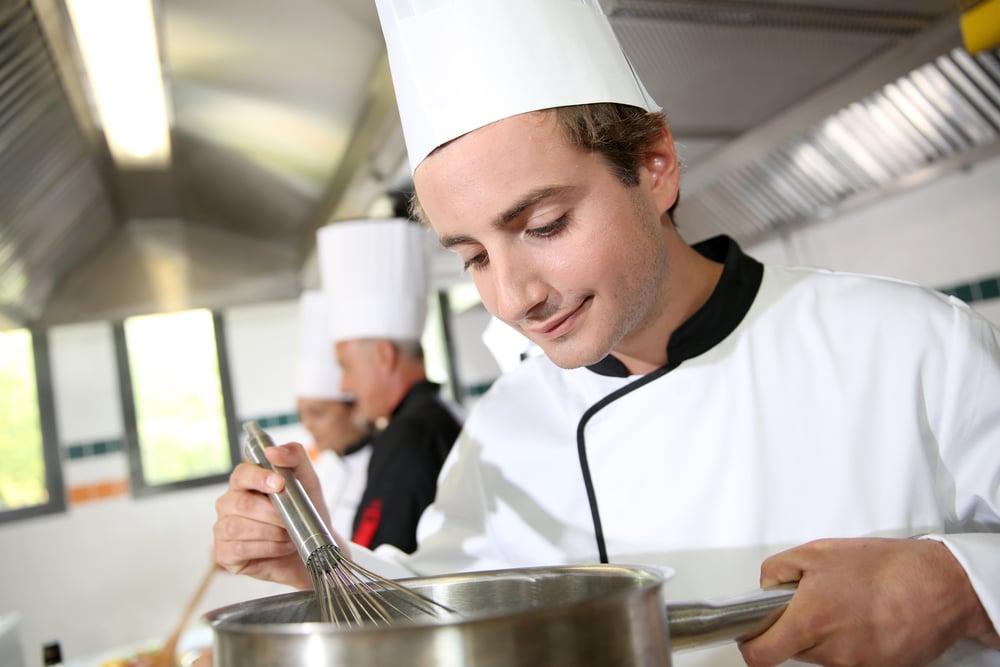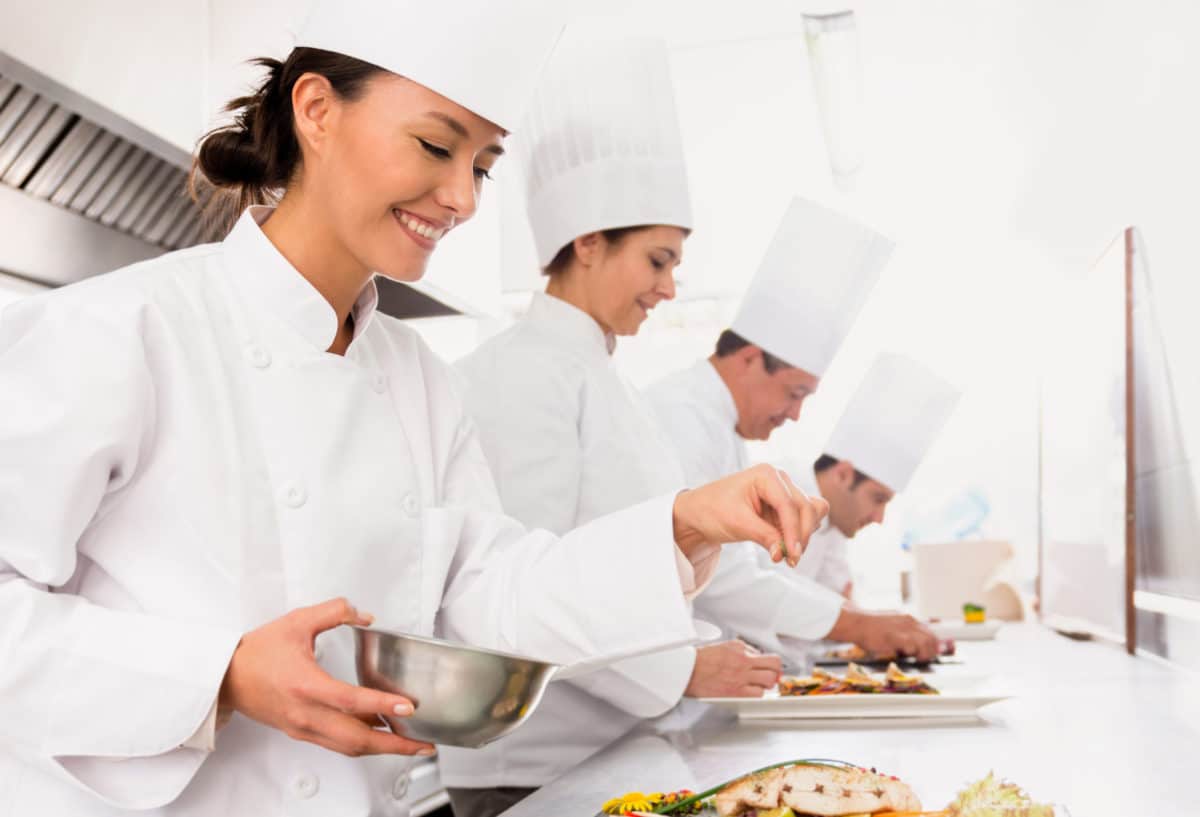In the beginning, when I was about 13, I knew I wanted to take an active role in cooking for myself. The idea of creating something was something worth investigating. I never got along with other children, and disliked sports as a child. Cooking was the one solo activity I could do on my own at the time.
By my freshman year of high school, I stumbled upon the first step in my career, a two year home economics class. By the end of those two years I felt thirsty for something more challenging. To my surprise, during a school fair I learned that a local vocational school offered all kinds of different trade classes. Culinary Arts was an option and I was able to enroll in my junior year.
The professional aspect of cooking kicked in during my first week when I had the task of testing recipes and managing a crew of fellow classmates in the student-run restaurant. It’s when I learned I couldn’t do my cooking alone anymore if I wanted to pursue my goals. Learning to work with a team of other cooks was my next stepping-stone lesson.
By my freshman year of high school, I stumbled upon the first step in my career, a two year home economics class. By the end of those two years I felt thirsty for something more challenging. To my surprise, during a school fair I learned that a local vocational school offered all kinds of different trade classes. Culinary Arts was an option and I was able to enroll in my junior year.
The professional aspect of cooking kicked in during my first week when I had the task of testing recipes and managing a crew of fellow classmates in the student-run restaurant. It’s when I learned I couldn’t do my cooking alone anymore if I wanted to pursue my goals. Learning to work with a team of other cooks was my next stepping-stone lesson.
High school was a crucial make-it-or-break-it time in my life. I’d been diagnosed with Asberger’s syndrome early in life and doctors predicted that school would be a struggle. But in 2007 I graduated high school with a solid 3.5 grade point average (GPA) and was accepted to my first-choice college, the New England Culinary Institute in Montpelier, Vermont.
That September I started as a college freshman in culinary school. Honestly, the first thing I felt was anxiousness to move in and settle down in unchartered territory. By the time I entered my very first class – Soups, Stocks, and Sauces – I felt like I was the only one riding a pedal bike on a Nascar Race Track. People in the kitchens were serious, and moving at light speed. It was easy to get scared and nervous about failing classes. But my father told me, “If you’re nervous, it’s just a natural sign that you care about the outcome.” I kept that advice with me all four years.

When I was lost I asked for help or guidance, and by the time I finished my first year of culinary school, I had more confidence and an idea of how things worked in the professional world of cooking. I was finding my much-needed bearings. My toughest challenge was anything to do with line service; the ticket machine was not my friend, and neither was the clock. But my favorite classes involved butchery and baking because they allowed a chance to slow down, work at my classic steady pace and focus on something important: quality control. My resulting grades were promising.
Four years of the classic blood, sweat, and tears came to an end. Family gathered to see me graduate, and my efforts and knowledge were something no one could take away. I looked back and asked myself, “What on earth was I scared of?”
In 2012, I was one of three alumni of my class of 300 asked by the college to write a public letter to that year’s graduating class. The theme was “Five Years Later: What are They Doing?” The alumni were the former class president, former class treasurer, and….me? I submitted my letter, in which I told my high school self “Don’t be scared, just dive in, and ask for help when necessary.”
In my culinary career, solving problems has been part of my job, as has working with a team, leading projects, and facing challenges.
Funny how life works. It’s natural to be scared, or conflicted about the future, but putting in work and effort will eventually lead to success. ![]()
